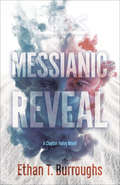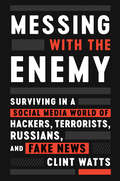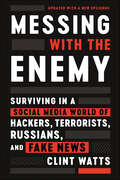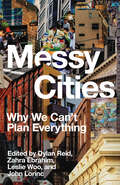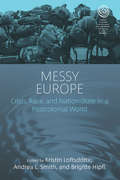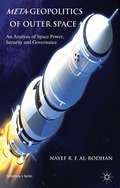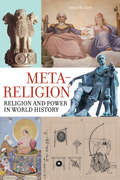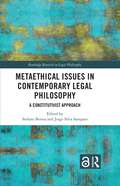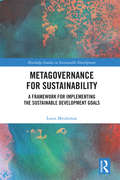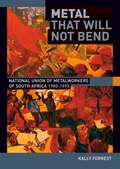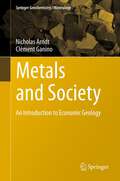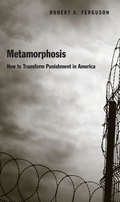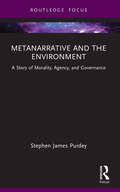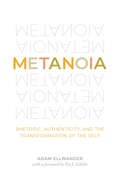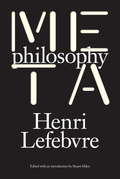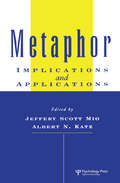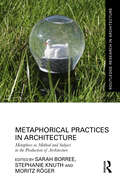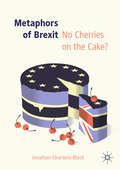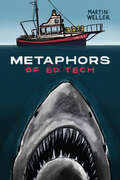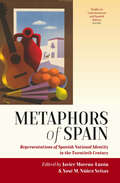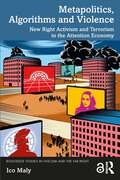- Table View
- List View
Messianic Reveal: A Clayton Haley Novel (The Clayton Haley Novels)
by Ethan T. BurroughsA unique thriller that dives deeply into Sunni and Shia Islam from a political perspective, taking readers behind the scenes in the Middle East.Messianic Reveal intelligently and compassionately, and at times humorously, narrates the story of an unexceptional young man of integrity who seeks simply to serve his country, and in so doing follows his instincts into a labyrinth of conspiracies. The novellaunches from and connects to real events and real people: the 1979 siege of Mecca, Osama Bin Laden’s brother, Ayatollah Khomeini’s temporary residences in France and Iraq, and so on.The most extraordinary and compelling parts of this fictional account are true or otherwise widely believed in the Middle East, and largely come from Ethan T. Burroughs’ personal experiences and relationships with locals there. Throughout Messianic Reveal, readers are taken behind the scenes into the government’s bureaucratic and policy machinations, and the West’s grappling with Islam’s political influence.
Messing with the Enemy: Surviving in a Social Media World of Hackers, Terrorists, Russians, and Fake News
by Clint WattsA former FBI Special Agent and leading cyber-security expert offers a devastating and essential look at the misinformation campaigns, fake news, and electronic espionage operations that have become the cutting edge of modern warfare—and how we can protect ourselves and our country against them.Clint Watts electrified the nation when he testified in front of the House Intelligence Committee regarding Russian interference in the 2016 election. In Messing with the Enemy, the cyber and homeland security expert introduces us to a frightening world in which terrorists and cyber criminals don’t hack your computer, they hack your mind. Watts reveals how these malefactors use your information and that of your friends and family to work for them through social media, which they use to map your social networks, scour your world affiliations, and master your fears and preferences.Thanks to the schemes engineered by social media manipulators using you and your information, business executives have coughed up millions in fraudulent wire transfers, seemingly good kids have joined the Islamic State, and staunch anti-communist Reagan Republicans have cheered the Russian government’s hacking of a Democratic presidential candidate’s e-mails. Watts knows how they do it because he’s mirrored their methods to understand their intentions, combat their actions, and coopt their efforts.Watts examines a particular social media platform—from Twitter to internet Forums to Facebook to LinkedIn—and a specific bad actor—from al Qaeda to the Islamic State to the Russian and Syrian governments—to illuminate exactly how social media tracking is used for nefarious purposes. He explains how he’s learned, through his successes and his failures, to engage with hackers, terrorists, and even the Russians—and how these interactions have generated methods of fighting back. Shocking, funny, and eye-opening, Messing with the Enemy is a deeply urgent guide for living safe and smart in a super-connected world.
Messing with the Enemy: Surviving in a Social Media World of Hackers, Terrorists, Russians, and Fake News
by Clint WattsA former FBI Special Agent and leading cyber-security expert offers a devastating and essential look at the misinformation campaigns, fake news, and electronic espionage operations that have become the cutting edge of modern warfare—and how we can protect ourselves and our country against them.Clint Watts electrified the nation when he testified in front of the House Intelligence Committee regarding Russian interference in the 2016 election. In Messing with the Enemy, the cyber and homeland security expert introduces us to a frightening world in which terrorists and cyber criminals don’t hack your computer, they hack your mind. Watts reveals how these malefactors use your information and that of your friends and family to work for them through social media, which they use to map your social networks, scour your world affiliations, and master your fears and preferences.Thanks to the schemes engineered by social media manipulators using you and your information, business executives have coughed up millions in fraudulent wire transfers, seemingly good kids have joined the Islamic State, and staunch anti-communist Reagan Republicans have cheered the Russian government’s hacking of a Democratic presidential candidate’s e-mails. Watts knows how they do it because he’s mirrored their methods to understand their intentions, combat their actions, and coopt their efforts.Watts examines a particular social media platform—from Twitter to internet Forums to Facebook to LinkedIn—and a specific bad actor—from al Qaeda to the Islamic State to the Russian and Syrian governments—to illuminate exactly how social media tracking is used for nefarious purposes. He explains how he’s learned, through his successes and his failures, to engage with hackers, terrorists, and even the Russians—and how these interactions have generated methods of fighting back. Shocking, funny, and eye-opening, Messing with the Enemy is a deeply urgent guide for living safe and smart in a super-connected world.
Messy Cities: Why We Can't Plan Everything
by John Lorinc Zahra Ebrahim Dylan Reid Leslie WooCan messiness make our cities more liveable, lively, and inclusive?Crowded streets, sidewalk vendors, jumbled architecture, constant clamour, graffitied walls, parks gone wild: are these signs of a poorly managed city or indicators of urban vitality?Messy Cities: Why We Can’t Plan Everything argues that spontaneity and urban workarounds are not liabilities but essential elements in all thriving cities.Forty-three essays by a range of writers from around the world illuminate the role of messy urbanism in enabling creativity, enterprise, and grassroots initiatives to flourish within dense modern cities.With pieces on guerrilla beaches, desire lines, urban interruptions, and the inner lives of unlovely buildings written by experts from all walks of life, Messy Cities makes the case for embracing disorder while not shying away from confronting its challenges.
Messy Europe: Crisis, Race, and Nation-State in a Postcolonial World (EASA Series #32)
by Kristín Loftsdóttir Andrea L. Smith Brigitte HipflUsing the economic crisis as a starting point, Messy Europe offers a critical new look at the issues of race, gender, and national understandings of self and other in contemporary Europe. It highlights and challenges historical associations of Europe with whiteness and modern civilization, and asks how these associations are re-envisioned, re-inscribed, or contested in an era characterized by crises of different kinds. This important collection provides a nuanced exploration of how racialized identities in various European regions are played out in the crisis context, and asks what work “crisis talk” does, considering how it motivates public feelings and shapes bodies, boundaries and communities.
Meta-Geopolitics of Outer Space
by Nayef R. F. Al-RodhanAl-Rodhan sheds new light on the debate about the geopolitics of outer space, going beyond applying traditional International Relations approaches to space power and security by introducing a multidimensional spatial framework. The meta-geopolitics framework includes space and expands classical power considerations to cover seven state capacities.
Meta-Religion: Religion and Power in World History
by James W. LaineWhereas many textbooks treat the subject of world religions in an apolitical way, as if each religion were a path for individuals seeking wisdom and not a discourse intimately connected with the exercise of power, James W. Laine treats religion and politics as halves of the same whole, tracing their relationship from the policies of Alexander the Great to the ideologies of modern Europe secularists, with stops in classical India, China, and the Islamic world. Meta-Religion is a groundbreaking text that brings power and politics to the fore of our understanding of world religions, placing religion at the center of world history. This synthetic approach is both transformative and enlightening as it presents a powerful model for thinking differently about what religion is and how it functions in the world. With images and maps to bring the narrative to life, Meta-Religion combines sophisticated scholarly critique with accessibility that students and scholar alike will appreciate.
Metaethical Issues in Contemporary Legal Philosophy: A Constitutivist Approach (Routledge Research in Legal Philosophy)
by Jorge Silva Sampaio Stefano BerteaThis volume explores the importance of constitutivism for legal studies. Constitutivism is the view that the normative force, or authority, of practical reasons is grounded in principles, capacities, aims, or functions that are essential to, and thus constitutive of, agency. While the implications that the constitutivist approach has on the fundamental metaethical disputes and central ethical debates have been extensively explored, the literature on the relations between constitutivism and law remains scarce, unsystematic, and sporadic. This collection brings together world-renowned practical philosophers and legal theorists to fill a noticeable gap in the literature. The authors systematically and innovatively address key dimensions of the relationships between constitutivism and the theoretical study of law, as well as programmatically offering novel insights into the conceptual connections between constitutivist claims, fundamental legal concepts and practices, legal issues, and, ultimately, the law as a distinctive concept. The book will be of interest to academics and researchers working in the areas of Legal Philosophy, Legal Theory, Jurisprudence, Moral Philosophy and Metaethics.Chapter 8 of this book is freely available as a downloadable Open Access PDF at http://www.taylor-francis.com under a Creative Commons Attribution-Non Commercial-No Derivatives (CC-BY-NC-ND) 4.0 license.
Metagovernance for Sustainability: A Framework for Implementing the Sustainable Development Goals (Routledge Studies in Sustainable Development)
by Louis MeulemanThe 17 Sustainable Development Goals (SDGs) which were adopted by the United Nations in September 2015 are universally applicable in all 193 UN Member States and connect the big challenges of our time, such as hunger and poverty, climate change, health in an urbanised environment, sustainable energy, mobility, economic development and environmental degradation. Sustainability has the characteristics of a ‘wicked problem’, for which there are no one-size-fits-all solutions. This book tests the hypothesis that the implementation of sustainable development, and in particular the 2015 SDGs, requires tailor-made metagovernance or ‘governance of governance’. This is necessary to develop effective governance and high quality and inclusive public administration and to foster policy and institutional coherence to support implementing the SDGs. Based on the growing literature on governance and metagovernance, and taking into account the specificities of societal factors such as different values and traditions in different countries, the book presents a framework for the design and management of SDG implementation. It shows how hierarchical, network and market governance styles can be combined and how governance failure can be prevented or dealt with. The book presents an overview of fifty ‘shades of governance’ which differ for each governance style, and a sketch of a concrete method to apply sustainability metagovernance. Metagovernance for Sustainability is relevant to academic and practitioner fields across many disciplines and problem areas. It will be of particular interest to scholars, students and policy-makers studying Sustainable Development, Governance and Metagovernance, Public Management and Capacity Building.
Metal that Will not Bend: The National Union of Metalworkers of South Africa, 1980-1995
by Kally ForrestIn the 1980s there was a surge of trade union power in South Africa. The National Union of Metalworkers of South Africa (Numsa) was prominent and innovative in this assertion of muscle.Metal that does not Bend traces Numsa’s accumulation, from a few small unions in a handful of factories to the staging of national strikes involving thousands of workers in auto and engineering. It examines how the union used its influence in macroeconomic and political arenas. Numsa was Cosatu’s most radical socialist affiliate, and the book explores its attempts to implement its vision. Historians have framed apartheid’s downfall as resulting from the activities of the exiled liberation movement, global anti-apartheid boycott strategies and internal township insurrection. This book reasserts the critical role of the internal labour movement.
Metals and Society
by Nicholas Arndt Clément GaninoIn the second edition Steve Kesler (University of Michigan) has been added as an author to rewrite some chapters. The motivation for this revised edition is to more intensively address economic issues that surround the exploitation of mineral resources. This emphasis gives the book a unique character. With these sections Metals and Society deals with issues that pervade much of current science reporting - the rate of exploitation of natural resources, the question of when or if these resources will be exhausted, the pollution and social disturbance that accompanies mining, the compromises and challenges that arise from the explosion of demand from China, India and other rapidly developing countries, and the moral issues that surround mining of metals in lesser developed countries for consumption in the "first-world" countries. With its dual character, the book will be useful as an introductory text for students in the earth sciences and a reference volume for students, teachers and researchers of geography, economics and the social sciences.
Metamorphoses of the City
by Pierre ManentWhat is the best way to govern ourselves? The history of the West has been shaped by the struggle to answer this question, according to Pierre Manent. A major achievement by one of Europes most influential political philosophers, "Metamorphoses of the City" is a sweeping interpretation of Europes ambition since ancient times to generate ever better forms of collective self-government, and a reflection on what it means to be modern. Manents genealogy of the nation-state begins with the Greek city-state, the "polis. " With its creation, humans ceased to organize themselves solely by family and kinship systems and instead began to live politically. Eventually, as the "polis" exhausted its possibilities in warfare and civil strife, cities evolved into empires, epitomized by Rome, and empires in turn gave way to the universal Catholic Church and finally the nation-state. Through readings of Aristotle, Augustine, Montaigne, and others, Manent charts an intellectual history of these political forms, allowing us to see that the dynamic of competition among them is a central force in the evolution of Western civilization. Scarred by the legacy of world wars, submerged in an increasingly technical transnational bureaucracy, indecisive in the face of proliferating crises of representative democracy, the European nation-state, Manent says, is nearing the end of its line. What new metamorphosis of the city will supplant it remains to be seen.
Metamorphosis: How to Transform Punishment in America
by Robert A FergusonIn the past few years, the need for prison reform in America has reached the level of a consensus. We agree that many prison terms are too long, especially for nonviolent drug offenders; that long-term isolation is a bad idea; and that basic psychiatric and medical care in prisons is woefully inadequate. Some people believe that contracting out prison services to for-profit companies is a recipe for mistreatment. Robert Ferguson argues that these reforms barely scratch the surface of what is wrong with American prisons: an atmosphere of malice and humiliation that subjects prisoners and guards alike to constant degradation. Bolstered by insights from hundreds of letters written by prisoners, Ferguson makes the case for an entirely new concept of prisons and their purpose: an “inner architectonics of reform” that will provide better education for all involved in prisons, more imaginative and careful use of technology, more sophisticated surveillance systems, and better accountability.
Metanarrative and the Environment: A Story of Morality, Agency, and Governance (Routledge Research in Environmental Policy and Politics)
by Stephen James PurdeyTo meet the challenge of global environmental degradation activists have tackled clear and concrete problems such as carbon emissions and climate change, the ruination of ecosystems and habitat, the precipitous loss of biodiversity, and many other unhappy consequences of irresponsible human behaviour. However, all such efforts to manually correct the course of history have been dwarfed by the magnitude and heavy forward momentum of modern industrial society. In Metanarrative and the Environment, Stephen James Purdey argues that material approaches to the environmental crisis cannot succeed without the power of a legitimating discourse – a new metanarrative – which fundamentally changes the ideational landscape of human development. Dr. Purdey begins in Part I by establishing the pragmatics of our environmental predicament – its roots and responses to it. He focuses on the concept, definition, and key features of metanarrative, introducing the hegemonic story that now rules the contemporary global mindscape. Part II takes on the moral problematic more directly, encouraging the evolution of a new metanarrative by bringing our potential for agency in the face of danger into sharper relief. Metanarrative and the Environment is multidisciplinary, with a particular emphasis on the creative humanities. It will be of interest to undergraduate and graduate students alike, as well as environmental activists and academics looking for a new way forward.
Metanoia: Rhetoric, Authenticity, and the Transformation of the Self
by Adam EllwangerWestern culture is in a moment when wholly new kinds of personal transformations are possible, but authentic transformation requires both personal testimony and public recognition. In this book, Adam Ellwanger takes a distinctly rhetorical approach to analyzing how the personal and the public relate to an individual’s transformation and develops a new vocabulary that enables a critical assessment of the concept of authenticity. The concept of metanoia is central to this project. Charting the history of metanoia from its original use in the classical tradition to its adoption by early Christians as a term for religious conversion, Ellwanger shows that metanoia involves a change within a person that results in a truer version of him- or herself—a change in character or ethos. He then applies this theory to our contemporary moment, finding that metanoia provides unique insight into modern forms of self-transformation. Drawing on ancient and medieval sources, including Thucydides, Plato, Paul the Apostle, and Augustine, as well as contemporary discourses of self-transformation, such as the public testimonies of Caitlyn Jenner and Rachel Dolezal, Ellwanger elucidates the role of language in signifying and authenticating identity. Timely and original, Ellwanger’s study formulates a transhistorical theory of personal transformation that will be of interest to scholars working in social theory, philosophy, rhetoric, and the history of Christianity.
Metanoia: Rhetoric, Authenticity, and the Transformation of the Self (G - Reference, Information And Interdisciplinary Subjects Ser.)
by Adam EllwangerWestern culture is in a moment when wholly new kinds of personal transformations are possible, but authentic transformation requires both personal testimony and public recognition. In this book, Adam Ellwanger takes a distinctly rhetorical approach to analyzing how the personal and the public relate to an individual’s transformation and develops a new vocabulary that enables a critical assessment of the concept of authenticity. The concept of metanoia is central to this project. Charting the history of metanoia from its original use in the classical tradition to its adoption by early Christians as a term for religious conversion, Ellwanger shows that metanoia involves a change within a person that results in a truer version of him- or herself—a change in character or ethos. He then applies this theory to our contemporary moment, finding that metanoia provides unique insight into modern forms of self-transformation. Drawing on ancient and medieval sources, including Thucydides, Plato, Paul the Apostle, and Augustine, as well as contemporary discourses of self-transformation, such as the public testimonies of Caitlyn Jenner and Rachel Dolezal, Ellwanger elucidates the role of language in signifying and authenticating identity. Timely and original, Ellwanger’s study formulates a transhistorical theory of personal transformation that will be of interest to scholars working in social theory, philosophy, rhetoric, and the history of Christianity.
Metaphilosophy
by David Fernbach Stuart Elden Henri LefebvreLeading French thinker with his key work on philosophical thoughtIn Metaphilosophy, Henri Lefebvre works through the implications of Marx's revolutionary thought to consider philosophy's engagement with the world. Lefebvre takes Marx's notion of the "world becoming philosophical and philosophy becoming worldly" as a leitmotif, examining the relation between Hegelian-Marxist supersession and Nietzschean overcoming. Metaphilosophy is conceived of as a transformation of philosophy, developing it into a programme of radical worldwide change. The book demonstrates Lefebvre's threefold debt to Hegel, Marx and Nietzsche, but it also brings a number of other figures into the conversation, including Sartre, Heidegger and Axelos. A key text in Lefebvre's oeuvre, Metaphilosophy is also a milestone in contemporary thinking about philosophy's relation to the world.From the Trade Paperback edition.
Metaphor: Implications and Applications
by Jeffery Scott Mio Albert N. KatzResearch on metaphor has been dominated by Aristotelian questions of processes in metaphor understanding. Although this area is important, it leaves unasked Platonic questions of how structures of the mind affect such processes. Moreover, there has been relatively little work on how metaphors affect human behavior. Although there are numerous postdictive or speculative accounts of the power of metaphors to affect human behavior in particular areas, such as clinical or political arenas, empirical verification of these accounts has been sparse. To fill this void, the editors have compiled this work dedicated to empirical examination of how metaphors affect human behavior and understanding. The book is divided into four sections: metaphor and pragmatics, clinical uses of metaphor, metaphor and politics, and other applications of metaphor. Chapters contained within these sections attempt to merge Aristotelian questions with Platonic ones.
Metaphorical Practices in Architecture: Metaphors as Method and Subject in the Production of Architecture (Routledge Research in Architecture)
by Sarah Borree Stephanie Knuth Moritz RögerMetaphors are diversly and intricately embedded in architectural practice and discourse. Precisely for this reason, this volume argues and sets out to explore, how they can be engaged to critically interrogate architecture’s social, cultural and political dimensions – past and present – and to productively challenge and intervene with established perspectives, debates and practices. Mapping out not just potentials but also addressing the challenges, limitations and dangers inherent in using metaphors in architectural research and practice, the volume prominently illustrates the ambiguity and contradictoriness inherent in both metaphors and the process of engaging and exploiting them. Covering a broad range of historical and geographical cases and concerns, the contributions illustrate effectively that metaphors can expand or narrow our engagement with architecture, and consolidate or legitimise but also destabilise and challenge established social, cultural, disciplinary and political structures, concepts and categories. With its aim to explore metaphors as both subject and method to critically challenge and expand established practices, perspectives and standards in architectural research and practice, the volume will be of interest for scholars working across the architectural humanities, including architectural history, theory, culture, design and urbanism, as well as for researchers concerned with architecture and the city from fields such as cultural, visual and area studies as well as art history.
Metaphors in International Relations Theory
by Michael P. MarksMetaphors constitute a fundamental way in which humans understand the world around them. This book offers a comprehensive analysis of metaphors in theories of international relations. Until recently, conscious attention to metaphors in theories of international relations has been haphazard and sporadic. This book examines the metaphors that inform the major paradigms in international relations theory. Readers will discover that the vast majority of the terminology cataloguing, defining, and naming theories, concepts, and analytical tools pertaining to the study of international relations are metaphorical in nature. The book concludes that metaphors are an essential element in all aspects of international relations theory.
Metaphors of Brexit: No Cherries on the Cake?
by Jonathan Charteris-BlackHow were social media posts, scripted speeches, traditional news media and political cartoons used and understood during the Brexit campaign? What phrases and metaphors were key during and after the 2016 Brexit referendum? How far did the Remain and Leave campaigns rely on metaphor to engage with supporters in communicating their political positions? These questions, and many others, can be answered only through a systematic analysis of the actual language used in relation to Brexit by the different parties involved. By drawing on a range of data sources and types of communication, and presenting them as 'frames' through which individuals can attempt to understand the world, the author provides the first book-length examination of the metaphors of Brexit. This book takes a detailed look at the rhetorical language behind one of the major political events of the era, and it will be of interest to students and scholars of linguistics and political science, as well as anyone with a special interest in metaphor, rhetoric, Brexit, or political communication more broadly.
Metaphors of Ed Tech (Issues in Distance Education)
by Martin WellerThe criticisms leveled at online education during the Covid-19 pandemic revealed not only a lack of understanding about how educational technology can be deployed effectively, but a lack of imagination. In this refreshing and insightful volume, Martin Weller provides new ways of thinking about educational technology through a wide range of metaphors. By using metaphors as a mental model, Weller enables educators to move beyond pragmatic concerns into more imaginative and playful uses of technology and to critically examine the appropriate implementation and adoption of ed tech.
Metaphors of Spain: Representations of Spanish National Identity in the Twentieth Century (Studies in Latin American and Spanish History #1)
by Xosé M. Núñez Seixas Javier Moreno-LuzónThe history of twentieth-century Spanish nationalism is a complex one, placing a set of famously distinctive regional identities against a backdrop of religious conflict, separatist tensions, and the autocratic rule of Francisco Franco. And despite the undeniably political character of that story, cultural history can also provide essential insights into the subject. Metaphors of Spain brings together leading historians to examine Spanish nationalism through its diverse and complementary cultural artifacts, from “formal” representations such as the flag to music, bullfighting, and other more diffuse examples. Together they describe not a Spanish national “essence,” but a nationalism that is constantly evolving and accommodates multiple interpretations.
Metaphysics and Method in Plato's Statesman
by Kenneth M. SayreAt the beginning of his Metaphysics, Aristotle attributed several strange-sounding theses to Plato. Generations of Plato scholars have assumed that these could not be found in the dialogues. In heated arguments, they have debated the significance of these claims, some arguing that they constituted an 'unwritten teaching' and others maintaining that Aristotle was mistaken in attributing them to Plato. In a prior book-length study on Plato's late ontology, Kenneth M. Sayre demonstrated that, despite differences in terminology, these claims correspond to themes developed by Plato in the Parmenides and the Philebus. In this book, which was originally published in 2006, he shows how this correspondence can be extended to key, but previously obscure, passages in the Statesman. He also examines the interpretative consequences for other sections of that dialogue, particularly those concerned with the practice of dialectical inquiry.
Metapolitics, Algorithms and Violence: New Right Activism and Terrorism in the Attention Economy (Routledge Studies in Fascism and the Far Right)
by Ico MalyMetapolitics, Algorithms and Violence argues that we need a more finegrained approach to understand contemporary far-right violence – an approach that takes language and cultural production in a digital economy seriously. This book underlines the importance of socio-political, economic, historical and technological context in understanding the rise of the new right. More concretely, based on a digital ethnographic approach, it argues that we should understand this violence and the contemporary rise of new far-right practices and actors in relation to the theoretical renewal of ‘La Nouvelle Droite’ in the 20th century; the ‘democratization’ of new right metapolitics in the 21st century as a result of the rise of digital media; and the development of a layered, transnational and polycentric new right cultural niche in which far-right activists and terrorists produce identity, discourse, digital cultures and practices. This work will be an engaging and necessary read for researchers interested in social media, digital culture, far-right politics, extremism and terrorism.
